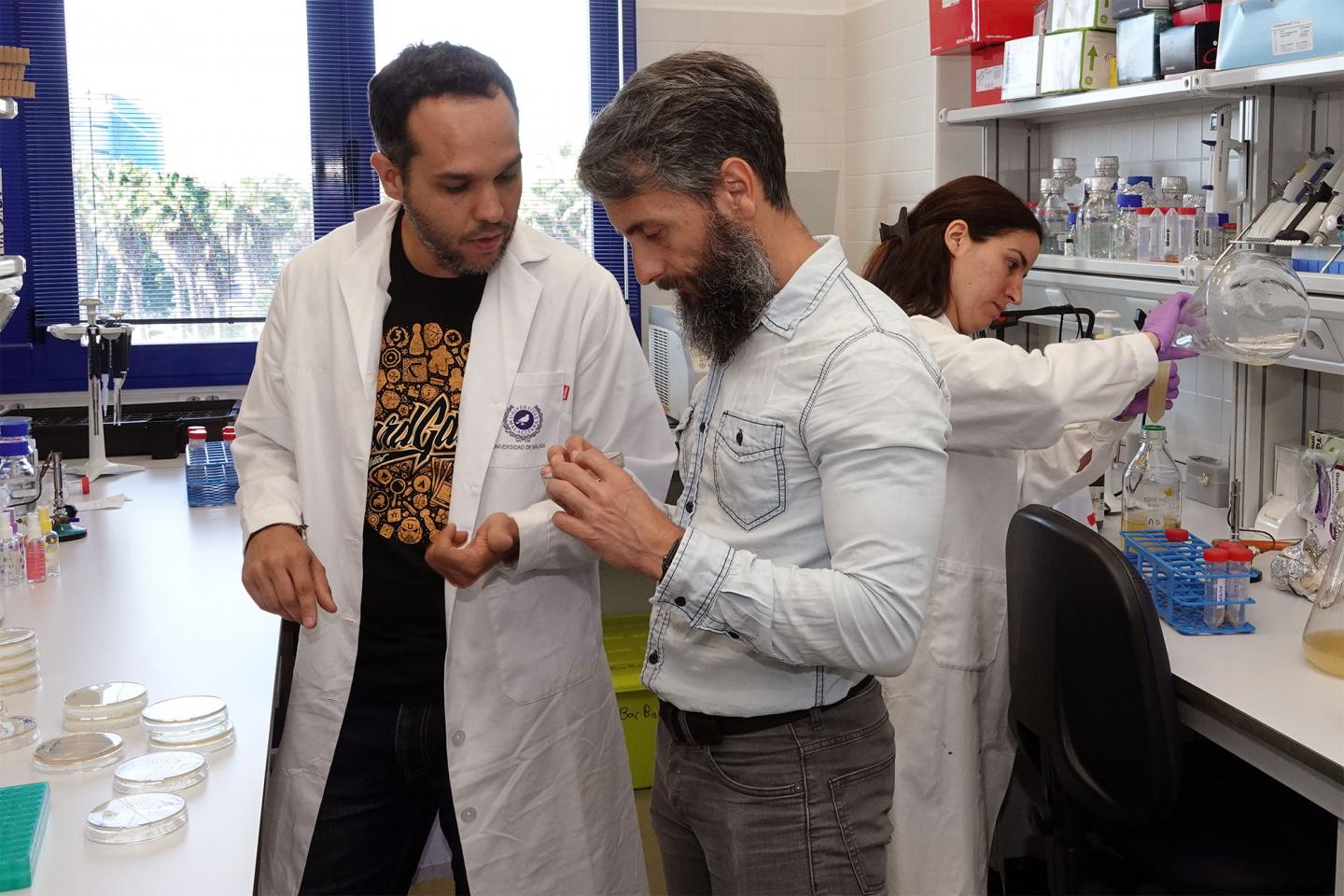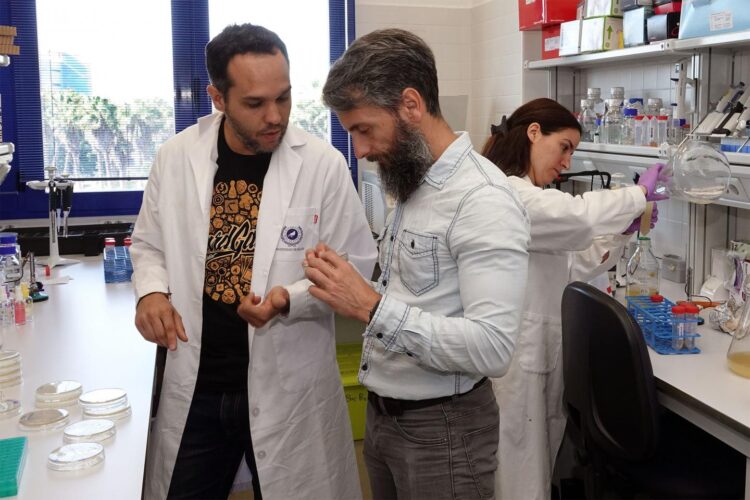The study has been conducted at ‘BacBio’, a laboratory of the University of Malaga (UMA) that specializes in the research on bacteria-plant interactions

Credit: University of Malaga
The laboratory of the UMA “BacBio” has proved that Bacillus subtilis cells, when deprived of an amyloid protein (TasA), exhibit a range of cytological anomalies and dysfunctions leading to their premature death. A discovery that enables progress to be made in understanding the role of these proteins, widely distributed in the microbial world, and helps improve biological control methods in sustainable agriculture. This research has been recently published in the scientific journal Nature Communications.
The UMA research team has particularly evidenced how this amyloid protein TasA, required for the assembly of the bacterial communities known as “biofilms”, also prevents bacterial cell death, but preserving cell membrane integrity. “That is: we observed a complementary role in these proteins in addition to their merely structural role”, explains the main author of this study, the researcher Diego Romero, who is also a member of the Institute for Mediterranean and Subtropical Horticulture “La Mayora” (IHSM), a joint research institute of the Spanish National Research Council (CSIC) and the UMA.
According to the expert, this dual functionality is reflected in bacterial attachment to plant surfaces, where the protein contributes to combat pathogen attack and improve bacterial fitness. “We aim to boost its use in sustainable models of crop production and protection”, says the Professor of the UMA Department of Microbiology.
Thus, this study has worked on the bacterium Bacillus subtilis placing emphasis on two aspects: the study of its molecular bases, that lead to the formation of bacterial communities known as “biofilms”, and how these biofilms contribute to the beneficial activity of Bacillus as biocontrol agents in sustainable agriculture models.
The amyloids: dual functionality
Amyloids are proteins primarily known for its relation to degenerative diseases in human beings. In fact, “amyloidosis”, an ailment caused by amyloid accumulation in organs or tissues, is named after them. However, as noted by this research, amyloid proteins (TasA among them) have the ability to adopt a great variety of purposes in nature, reason why they are called functional amyloids.
“The fact that these proteins are widely distributed in the microbial world entails the possibility that they might play a role in other bacterial species stabilizing cell integrity, or at least a different and complementary role to that initially observed in each of these systems”, clarifies Romero.
The expert states that the importance of these results is twofold. From the agrobiotechnological point of view, it allows researchers to better understand the behaviour of beneficial bacteria, hence, improve and reinforce its use in sustainable production and protection programmes. On the other hand, from the microbial point of view, where amyloid proteins are highly distributed, a new target has been identified to be attacked should they wish to harm pathogenic microorganisms.
###
The study has been supported by funding granted by the European Research Council (ERC-StG programme), which promotes top-quality research projects, and the Spanish Ministry of Economy and Competitiveness.
BacBio Laboratory, located in the Bioinnovation building of the UMA, has been studying bacteria physiology and their interaction with the environment since 2013. Plants are another priority line of research, particularly, the Cucurbitaceae, a plant family which comprises melon and cucumber.
Bibliography:
Cámara-Almirón, J., Navarro, Y., Díaz-Martínez, L. et al. Dual functionality of the amyloid protein TasA in Bacillus physiology and fitness on the phylloplane. Nat Commun 11, 1859 (2020). https:/
Media Contact
María Guerrero
[email protected]
Original Source
https:/
Related Journal Article
http://dx.





